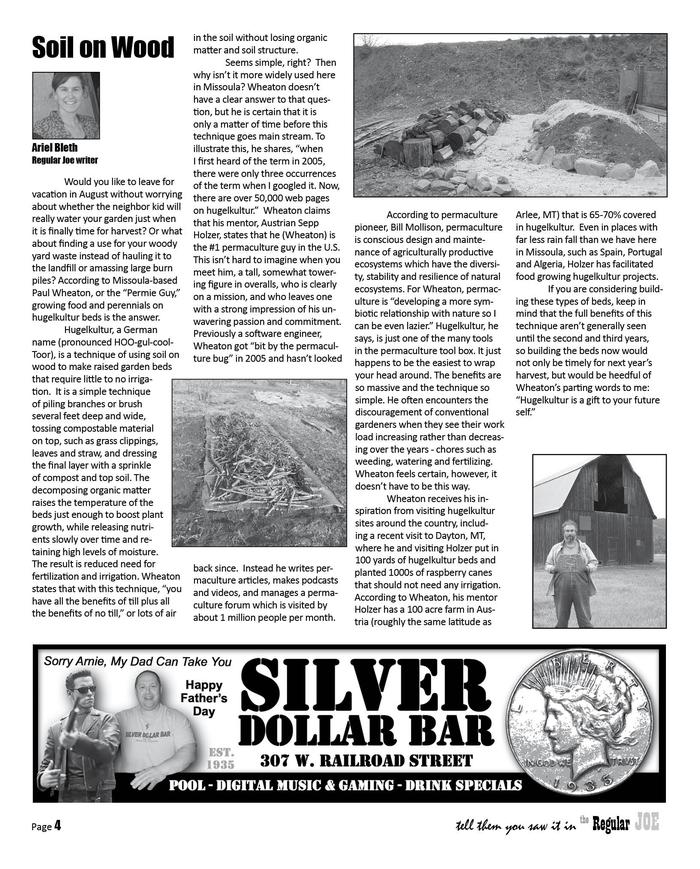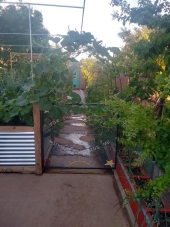
 22
22




 19
19




Jay Angler wrote:One of the "problems" not mentioned so far, is the tendency for everything to ripen at once.
 11
11




Jay Angler wrote:One of the "problems" not mentioned so far, is the tendency for everything to ripen at once.
--
"Whitewashed Hope: A Message from 10+ Indigenous Leaders and Organizations"
https://www.culturalsurvival.org/news/whitewashed-hope-message-10-indigenous-leaders-and-organizations
 9
9




 13
13




Gordon Blair wrote: Maybe someone will come up with abundant, near-free fusion energy and solve some of those problems...
How permies.com works
What is a Mother Tree ?
 4
4




paul wheaton wrote:
“ I wonder if the laziest and most forgetful gardener can shift their staples to sunchokes, walking onions and kale. “
Personally I’d like staples to be alliums, potatoes/sw potatoes and aster greens like escaroles/chicories/dandelions, and yeah sunchokes are cool 👍 😊
 8
8




Douglas Alpenstock wrote:
Nathan Burton wrote:Money could save time, for sure. But how better could you possibly use that time?
It's a good question. I think everyone's situation is different. Some have obligations with work and family that must take priority. And to be honest, not everyone has the "farmer gene."
 6
6




tuffy monteverdi wrote:
paul wheaton wrote:
“ I wonder if the laziest and most forgetful gardener can shift their staples to sunchokes, walking onions and kale. “
Personally I’d like staples to be alliums, potatoes/sw potatoes and aster greens like escaroles/chicories/dandelions, and yeah sunchokes are cool 👍 😊
 10
10




Unqualified self taught mad scientist focusing on Biodiversity & Natural Biological Research
 7
7




 5
5




Douglas Alpenstock wrote:Interesting observations! I can only speak for the situation around here, where supermarkets tend to stock varieties of produce they can supply to customers on a more-or-less reliable basis. These are businesses, doing what their customers expect. The variety remains fairly good, though the current *ahem* "politics" means there is more produce from a wide variety of global sources, some fantastic, some middling. The ethnic vegetables are in good supply also. Overall, the selection doesn't seem to indicate any lack of choice.
Does your government actually prohibit you from giving away free apples? Pardon my skepticism, but I find that hard to believe.
Unqualified self taught mad scientist focusing on Biodiversity & Natural Biological Research
 4
4




Douglas Alpenstock wrote:Interesting observations! I can only speak for the situation around here, where supermarkets tend to stock varieties of produce they can supply to customers on a more-or-less reliable basis. These are businesses, doing what their customers expect. The variety remains fairly good, though the current *ahem* "politics" means there is more produce from a wide variety of global sources, some fantastic, some middling. The ethnic vegetables are in good supply also. Overall, the selection doesn't seem to indicate any lack of choice.
Does your government actually prohibit you from giving away free apples? Pardon my skepticism, but I find that hard to believe.
Unqualified self taught mad scientist focusing on Biodiversity & Natural Biological Research
 6
6




Samantha Lewis wrote:
I am now producing all my own meat, eggs and milk. It feels great to go to the grocery store and not really need anything.
 8
8




Marshall Ashworth wrote:
And to add to it all, you can't even give the excess crop away anymore, because .. the government.
Seems a little drastic to say with all the starving and homeless people but shhh no thinking.
Lets just say, when i move onto my next block of land, i am considering having the fence around my house and the greenhouses and maybe have the trees "a little exposed" for people to help themselves. Because technically its not me giving it away; and i'm not going to complain about someone taking a burden off my shoulders.
 17
17




Nancy Reading wrote:
Is it a waste of time to grow your own food - does it take such a lot of time that you could just earn the money instead and buy the food?

|
Impossible is for the unwilling --John Keats ... see, this tiny ad now exists:
Play Your Way to a Sustainable Lifestyle: Uncover Permaculture Principles with Each Card
https://gardener-gift.com/
|








